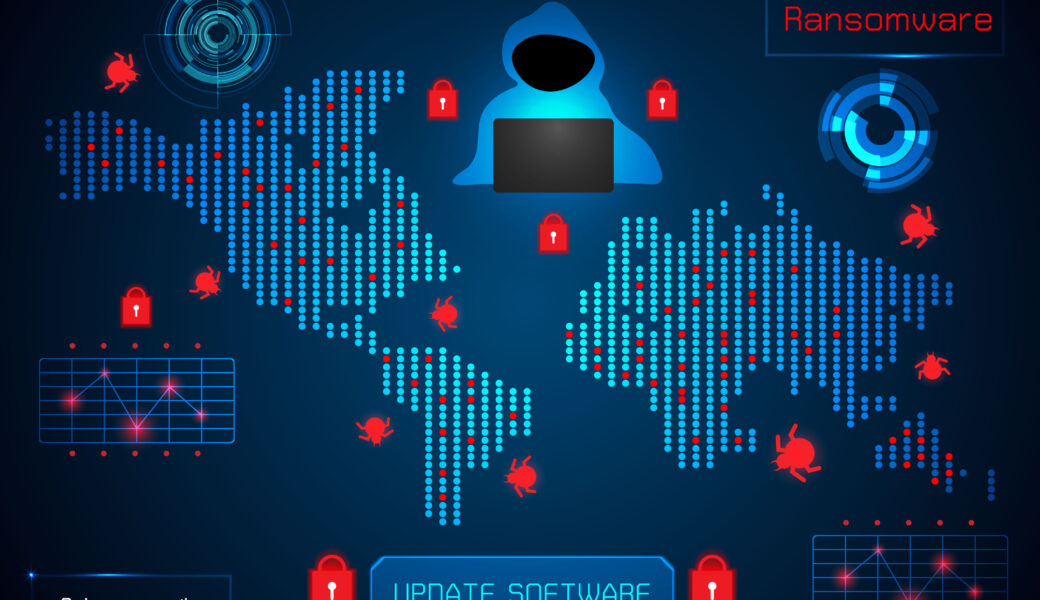Almost any company or business out there with sensitive data can be susceptible to a data breach or a break in their cybersecurity. That’s just the nature of having sensitive information stored online. Over the years of the internet age, we have seen countless companies, big or small, suffer from these cyberattacks. Often, this results in liabilities, fines and legal fees for the victimized company. Even the government isn’t safe from this happening to them!
The statistics show that you don’t have to be a big company in order to be the target of a cyberattack. Almost more than half of all small businesses have experienced a data breach, and many of them have had multiple breaches.
These data breaches can do much more than damage your computer systems. This can also ruin your reputation in the business with your clients and prevent future clients from wanting to work with you. It can also put them at risk, along with your employees, depending on what type of information got leaked.
This is why getting cyber insurance could be a great preventative measure to protect your business, your clients and employees, and the future of your business.
So What Is Cyber Insurance Exactly?
As with other types of insurance policies, cyber liability insurance has a number of different types of coverages available. And the bigger your business is, the more areas you could be vulnerable.
Mainly, cyber insurance is meant to protect you from financial losses that occur due to a data breach or any other cyber event. Cyber insurance policies usually include first-party and third-party coverages. Within these, some types of coverage are included automatically and others are available as add-ons for an extra charge.
First-Party Coverage
First-party coverage covers you from any financial losses your company employee monitoring software experiences as a result of the breach, for example, informing your customers of the attack. First-party coverages can be subject to a deductible. More specifically, it will cover loss or damage to electronic data, this means that the cost of replacing or restoring data or programs is covered. It may also cover the cost of hiring an experienced consultant to preserve or reconstruct the data.
Any extra expenses or loss of income due to the data breach will also be covered in the first-party coverage while you avoid or try to minimize the closure of your business. Cyber extortion is also covered, this is when a hacker breaches your data and threatens the data with a virus, damage or denial of service unless you pay a sum that they specify. Your coverage will usually pay for any extortion payments you make and the expenses that occur along with meeting the hacker’s demands.
Some first-party coverages will also cover any marketing or public relations costs to mitigate the damage to your reputation after a breach. This is also known as crisis management.
Third-Party Liability Coverages
Third-party coverage refers to claims against your company or firm from people or other companies that were negatively impacted as a result of your actions, or lack of actions. An example would be failing to inform your customers of the hack, and as a result, their personal information is leaked on the internet. This is negligence on your part.
You will be protected from network security and privacy liability, so any negligent acts, errors or omissions that result from the cyberattack. And it will also protect you against claims made stating that you failed to protect this data.
Other things covered include electronic media, where you are protected from lawsuits against your firm for libel, slander, defamation or copyright infringement, and other related things. Third-party liability coverages will also help you cover fines or penalties brought to your company through any regulatory proceedings you might have to go through. This will also cover any attorney fees to assist you at these proceedings.
Benefits Of Cyber Insurance
Having cyber liability insurance has advantages for you and your business, especially if you do experience a cyberattack. As technology advances and more businesses are based online, cyberattacks will only increase with time, which means getting protection for you and your business is becoming increasingly important.
Most general business insurance policies will not cover digital assets, and only stick with covering physical or tangible property. For example, maybe your general insurance policy will cover your servers but not the data that is stored inside of it. This is why having cyber insurance comes in handy, and it will also cover the notification costs of the breach.
The expense that comes with a security breach varies with each attack, and no two are exactly the same, or incur the same costs. Because it is so unpredictable, it will be hard for you to know exactly what your budget to be when it comes to security. Having a cyber liability insurance policy under your belt will help to offset these costs and unexpected expenses should you suffer from a cyberattack.
Another main benefit of having cyber insurance is that you will be able to have resources quickly and at your fingertips. Your insurance provider is adept at handling these situations and they will also offer resources to your company to help deal with the emergency quickly and effectively. Most insurance companies can provide a “breach coach” to your company who will guide you through the situation. Your insurer will also help you with finding referrals for other relevant services, like a PR and legal team. This will all help you save time during those crucial moments.
As technology advances the threat of security data breaches becomes more complex and common over time. This is why it is important to consider purchasing cyber insurance for your company, especially if it mainly operates online or you store a lot of sensitive information online in the cloud, or on a server. Cyber insurance is only one piece of the pie when it comes to protecting your company from cyberattacks. Other things you might want to consider is hiring an IT company to help you protect your network from attacks, and you should also work together to formulate a plan should something happen. Your cyber liability insurance policy acts as a safety net, should all else fail.
Author Bio:
Rhett Desormeaux is a content writer currently working with BreezeMaxWeb. He’s a passionate writer and loves studying ancient history, especially Bronze Age civilizations.












